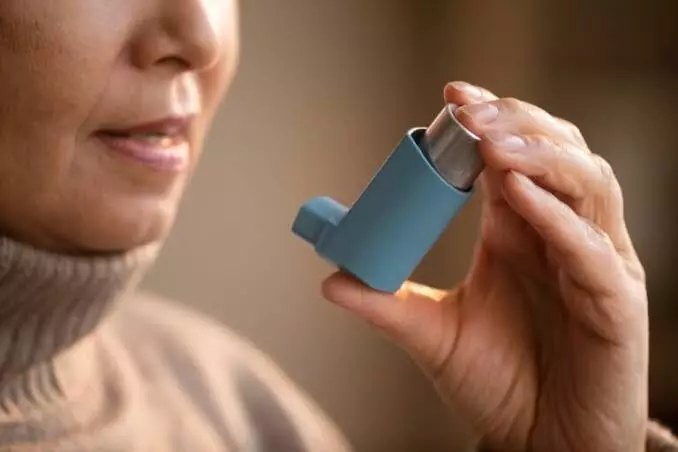World Asthma Day: How technology and innovation help in expanding asthma care
With India recording around 35 million cases in 2022, accounts for 13% global case burden and 42% of the global deaths
By Neelambaran A
World Asthma Day: How technology and innovation help in expanding asthma care
Hyderabad: Asthma, a common respiratory disease, affects over 260 million people globally and causes more than 450,000 deaths each year. Most of these deaths are preventable, but a lack of awareness and treatment facilities results in such huge casualties.
With high focus on preventing non communicable diseases (NCD), efforts are increased to reduce the caseload and diagnosis in India. With India recording around 35 million cases in 2022, accounts for 13% global case burden and 42% of the global deaths.
World Asthma Day 2025, observed on May 6th with the theme "Make Inhaled Treatments Accessible for All" highlights the urgent need to close gaps in asthma care and access, particularly through technology and innovation as per Global Initiative for Asthma (GINA).
Digital health to empower patients and providers
The technological advancements, including the rolling out of smartphone apps and smart inhalers, are transforming asthma management.
These tools allow patients to monitor symptoms, track medication usage, and receive real-time feedback, which helps them better understand and control their condition.
Dr. Vimi Varghese, Consultant Transplant Pulmonologist, Yashoda Hospitals said, “Mobile applications also facilitate continuous communication between patients and healthcare professionals, enabling timely interventions and personalized treatment plans. These innovations are especially valuable in underserved or remote areas where access to specialists is limited”.
Role of AI
Artificial intelligence (AI) and machine learning, the recent technologies are helping in improving the asthma care by analyzing large datasets from wearables, electronic health records, and environmental sensors.
“These technologies support clinicians in making evidence-based decisions, optimizing treatment plans, and predicting asthma exacerbations. AI-driven solutions can identify high-risk patients and tailor therapies, which helps reduce hospitalizations and improve quality of life”, Dr Vimi Varghese added.
Broader access through modern delivery methods
The scope for widening the access for asthma care across remote areas are made possible through digital tools, new methods for delivering medication and emerging therapies.
This gains specific importance as the asthma-related deaths in low and middle-income countries account for 96% of asthma-related deaths. The theme for 2025 emphasizes the focus on making inhaled therapies universally accessible while ensuring effective medications.
“Innovations such as environmentally friendly inhalers provide alternatives for patients who struggle with traditional treatments”, Dr Vimi Varghese said.
Technology for care
Telemedicine platforms eliminate geographical barriers, enabling remote consultations and continuous monitoring. In this way technology acts as a powerful equalizer in global asthma care.
Dr Vimi Varghese insisted on the efforts to enhance digital health literacy-such as gamified educational resources-empower patients, especially children, to understand and manage their asthma, leading to better adherence and outcomes.
“These advances align with World Asthma Day’s goals of increasing awareness, supporting patients, and driving policy changes to ensure equitable access to care”, he said.
Digital health, artificial intelligence, and novel delivery methods are not only modernizing management but also democratizing access, offering hope and improved outcomes for millions worldwide.